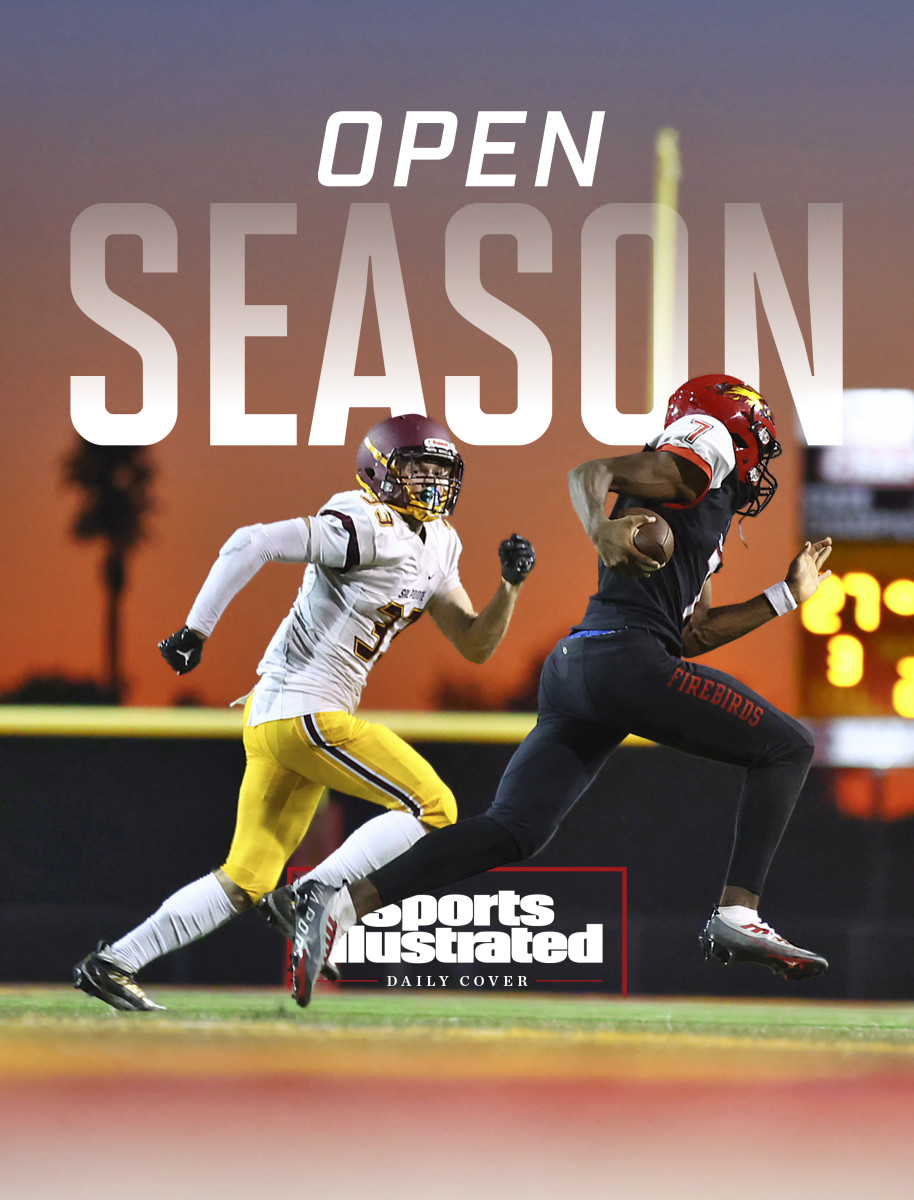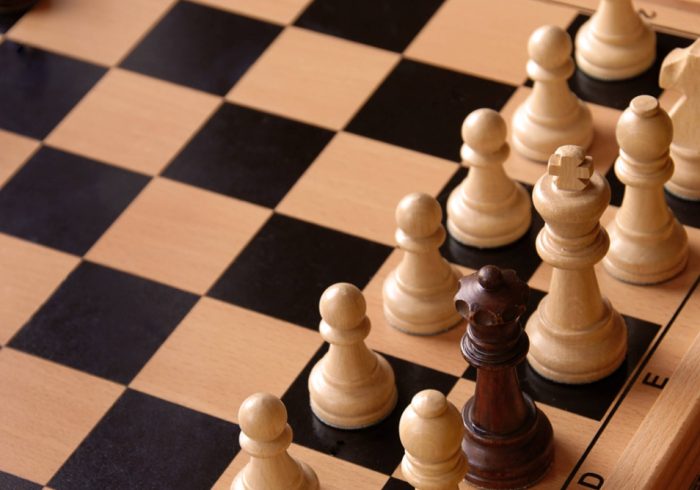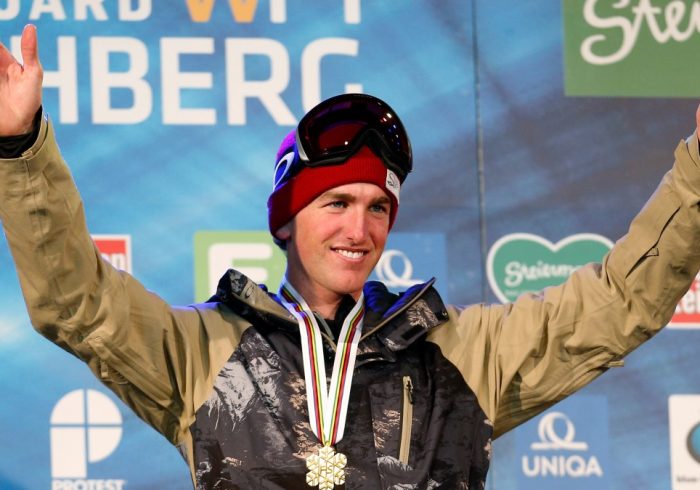Good morning, I’m Dan Gartland. I don’t want to talk about the Giants game, so let’s break down some chess drama instead.
In today’s SI:AM:
♟️ Chess drama
☀️ The wild world of Phoenix high school football
🏙️ Nets try to get back to normal
If you’re reading this on SI.com, you can sign up to get this free newsletter in your inbox each weekday at SI.com/newsletters.
A chess bombshell
The No. 1 chess player in the world has finally broken his silence about the biggest scandal in the game.
Grandmaster Magnus Carlsen released a statement yesterday in which he explicitly accuses fellow grandmaster Hans Niemann of cheating.
The statement comes after Carlsen abruptly withdrew from the Sinquefield Cup—one of the biggest tournaments on the calendar—early this month following a loss to Niemann, the No. 49 player in the world. Carlsen announced his withdrawal on Twitter while also linking to a video of soccer manager José Mourinho saying, “If I speak, I am in big trouble. And I don’t want to be in big trouble.” Two weeks later, Carlsen quit an online match against Niemann after making just a single move.
Until yesterday, Carlsen hadn’t commented on Niemann but it was clear from his actions that he had some problem with the 19-year-old American.
“I think that Magnus believes that Hans is probably cheating,” Hikaru Nakamura, the No. 6 player in the world and a popular chess streamer, said on Twitch after Carlsen withdrew from the Sinquefield Cup. Nakamura also said that Niemann had been banned by Chess.com for cheating.
Niemann subsequently admitted to cheating on Chess.com twice—once when he was 12 and once when he was 16. In an interview with the St. Louis Chess Club, the host of the Sinquefield Cup, Niemann said cheating was “the single biggest mistake of my life and I’m completely ashamed.” But after the interview, Chess.com’s Danny Rensch released a statement saying the site had evidence that “contradicts his statements regarding the amount and seriousness of his cheating on Chess.com.”
That brings us to Carlsen’s statement yesterday. He wrote that he was suspicious of how easily Niemann appeared to be making decisions during the Sinquefield Cup match.
I believe that Niemann has cheated more—and more recently—than he has publicly admitted. His over the board progress has been unusual, and throughout our game in the Sinquefield Cup I had the impression that he wasn’t tense or even fully concentrating on the game in critical positions, while outplaying me as black in a way I think only a handful of players can do.
Carlsen’s statement comes after the International Chess Federation (FIDE) criticized his handling of the Niemann situation. FIDE president Arkady Dvorkovich issued a statement on Friday, which read, in part:
First of all, we strongly believe that the World Champion has a moral responsibility attached to his status, since he is viewed as a global ambassador of the game. His actions impact the reputation of his colleagues, sportive results, and eventually can be damaging to our game. We strongly believe that there were better ways to handle this situation.
At the same time, we share his deep concerns about the damage that cheating brings to chess. FIDE has led the fight against cheating for many years, and we reiterate our zero-tolerance policy toward cheating in any form.
Niemann has repeatedly denied cheating in over-the-board (chess lingo for in-person) matches but FIDE is prepared to investigate Carlsen’s allegations.
The best of Sports Illustrated
In today’s Daily Cover, John Walters has a dispatch from the wild world of Phoenix high school football:
In the Sonoran desert, no stranger to wildfires, a prep football inferno rages, blurring the lines between high school and Division I. The booster program at Marcel Jones’s Chaparral High offers a $3,500 donor package that includes a sideline pass and premium parking spot. Saguaro just installed a $300,000 film room, compliments of its own booster club (which has an annual budget of $275,000). Desert Edge High, an upwardly mobile program in Goodyear, has a coaching staff of 19.
As Aaron Judge’s pursuit of 62 drags on, Stephanie Apstein spoke with Yankees players about the strange position it puts them in. … Howard Beck checks in from media day in Brooklyn, where the Nets are trying to get back to normal after a hectic year. … Meanwhile, at Lakers media day, Rohan Nadkarni writes that Russell Westbrook is still the elephant in the room.
Around the sports world
Myles Garrett has reportedly been discharged from the hospital after being injured in a single-car crash. … Sterling Shepard, who tore his Achilles last year, was carted off the field with another injury last night. … Aaron Rodgers, in predictably cryptic fashion, implied that the Buccaneers’ video board operator revealed crucial information that helped the Packers win. … The Hornets are signing LaMelo Ball’s brother LiAngelo to a nonguaranteed deal. … Former NASCAR champion Jimmie Johnson is retiring.
The top five…
… things I saw yesterday:
5. Peyton Manning’s armchair clock-management.
4. Aaron Judge’s choice of hoodie before the Yankees’ game in Toronto.
3. Orioles rookie Gunnar Henderson’s long home run at Fenway.
2. Saquon Barkley’s vision on his 36-yard touchdown run.
1. CeeDee Lamb’s one-handed touchdown catch.
SIQ
If you thought Sunday night’s Broncos-49ers game was ugly, wait until you see the box score from the Giants-Washington game on this date in 1942. New York won the game despite not achieving a single first down. What was the final score?
- 3–0
- 6–3
- 14–7
- 17–3
Yesterday’s SIQ: Who has the most total passing yards in the history of the Giants-Cowboys rivalry?
- Tony Romo
- Eli Manning
- Troy Aikman
- Phil Simms
Answer: Eli Manning. And by a mile. He threw for 7,560 yards in 30 career games against Dallas. Simms is second with 4,804 in 23 games, Romo is third with 4,639 in 20 games and Aikman is fourth with 4,164 in 22 games.
If he has the same longevity as Manning, Dak Prescott could end up taking that title, though. Prescott has thrown for 2,886 yards in 11 games against New York, or 262.4 yards per game. That’s the highest average of any quarterback in the series. If only he could stay healthy.
From the Vault: Sept. 27, 1976
Some of the best writing in SI’s archives is about Muhammad Ali—his greatness in the ring, his quick wit, the pomp and circumstance that inevitably followed him whenever he fought. But Ali’s third fight against Ken Norton, in late September 1976, was expected to be a dud—and it was.
Mark Kram wrote that it was tough to get excited about Ali-Norton III:
The fight lacks the stuff of true theater. There is no Floyd Patterson wounded and lost, seeking redemption against the unsoulful and malevolent Sonny Liston. There is no Cassius Clay, hysterical on the eve of the first Liston fight in Miami Beach. This is not the Frazier-Ali series, with all its coiling virulence, bitter feelings and political and sociological undertones. No. This is merely an oldtime big fight, the kind that occurred often when the fight world was free of words like psyching and TV satellites and was genuinely shocked if a fighter did more than grunt.
Ticket sales—both to see the fight live at Yankee Stadium and on closed-circuit television at theaters across the country—lagged. It was expected to draw a crowd of about 30,000 at the 65,000-seat ballpark and the lack of momentum in closed-circuit sales led to “an undercurrent of concern, if not panic, among the promoters,” Kram wrote.
The concerns were well founded, it turned out. Ali won by unanimous decision in a fight that was considered a dud. Writing in SI after the match, Kram called it “one of the worst heavyweight title fights in history”, adding that the 34-year-old Ali “was brutally exposed and found to be a fragile mortal like the rest of us.”
The fight was also poorly attended for reasons other than the quality of the action in the ring. Kram wrote that people were beaten and robbed outside the stadium as they arrived:
On this night the cops chose the Stadium as the scene of a job action over work schedules and deferred raises; hundreds of them, off duty and on duty, turned the night into a holiday for muggers, pickpockets and general marauders. The on-duty cops did nothing except laugh at—and sometimes join—their off-duty colleagues, who were blowing whistles and stopping traffic. Their eyes were turned away as one saw a man hit over the head and then frisked rapidly while he was on the ground; as one watched an arm reach into a limousine and pull out a necklace; as one looked on while three photographers were robbed of all their equipment; as tickets were stolen right out of hands and women were pawed. It was not a pretty sight.
According to Ring magazine, promoter Bob Arum estimated that only 19,000 of the 30,000 ticketed patrons actually made it inside the stadium, some having decided to return home after seeing the hectic scene outside the ballpark. Whatever the reason for the underwhelming crowd, it was the final fight at the old Yankee Stadium and the last at the corner of E 161st and River until Miguel Cotto and Yuri Foreman met in a super welterweight title match at the new stadium in 2010.
Check out more of SI’s archives and historic images at vault.si.com.
Sports Illustrated may receive compensation for some links to products and services on this website.


